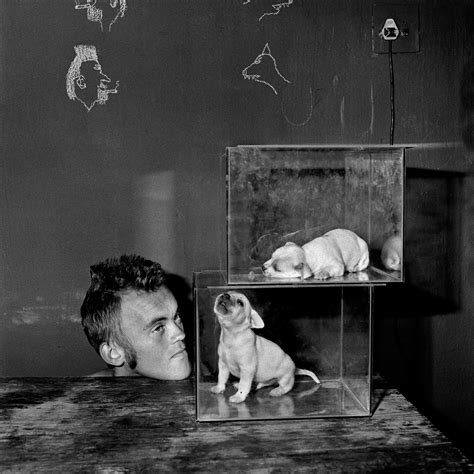A Quote by Robert Bateman
Aesthetic pleasure is not to be taken lightly; it's very important for the spirit and therefore the health.
Related Quotes
It's dark because you are trying too hard. Lightly child, lightly. Learn to do everything lightly. Yes, feel lightly even though you're feeling deeply. Just lightly let things happen and lightly cope with them. So throw away your baggage and go forward. There are quicksands all about you, sucking at your feet, trying to suck you down into fear and self-pity and despair. That's why you must walk so lightly. Lightly my darling.
The very desire to seek spiritual enlightenment is in fact nothing but the grasping tendency of the ego itself, and thus the very search for enlightenment prevents it. The 'perfect practice' is therefore not to search for enlightenment but to inquire into the motive for seeking itself. You obviously seek in order to avoid the present, and yet the present alone holds the answer: to seek forever is to miss the point forever. You always already are enlightened Spirit, and therefore to seek Spirit is simply to deny Spirit.
I always wanted to write a book about a common food that becomes a commercial commodity and therefore becomes economically important and therefore becomes politically important and culturally important. That whole process is very interesting to me. And salt seemed to me the best example of that, partly because it's universal.
Only the Holy Spirit can purify the intellect, for unless a greater power comes and overthrows the despoiler, what he has taken captive will never be set free (cf. Lk. 11:21-22). In every way, therefore, and especially through peace of soul, we must make ourselves a dwelling-place for the Holy Spirit.
Health insurance in Germany continues with no change if you lose a job. We do know very well that people who become unemployed are at an increased risk of becoming ill, and therefore becoming unemployed is about the worst time to lose health insurance. So therefore, everyone who loses a job remains in exactly the same insurance system he is in.
I think that the gifts of the spirit are always subject to the control of the person who's exercising them. You're not forced in to doing it. Love never forces. And therefore 'the spirit of the prophet is subject to the prophet' is another way it is put. You don't suddenly find yourself taken over by a spirit and find yourself speaking tongues. You're in control, but it's a gift. You can stop and start as you please, but it's a way of communicating with God.
When Hume insists that taste is a matter of delicacy, that it is a matter of having a sensitivity to features of an object itself, he is very close to the rationalist doctrine. Hume was really a covert objectivist (or partial one) about aesthetic pleasure because that pleasure had to be based on the sensitivity to features in the object.







































